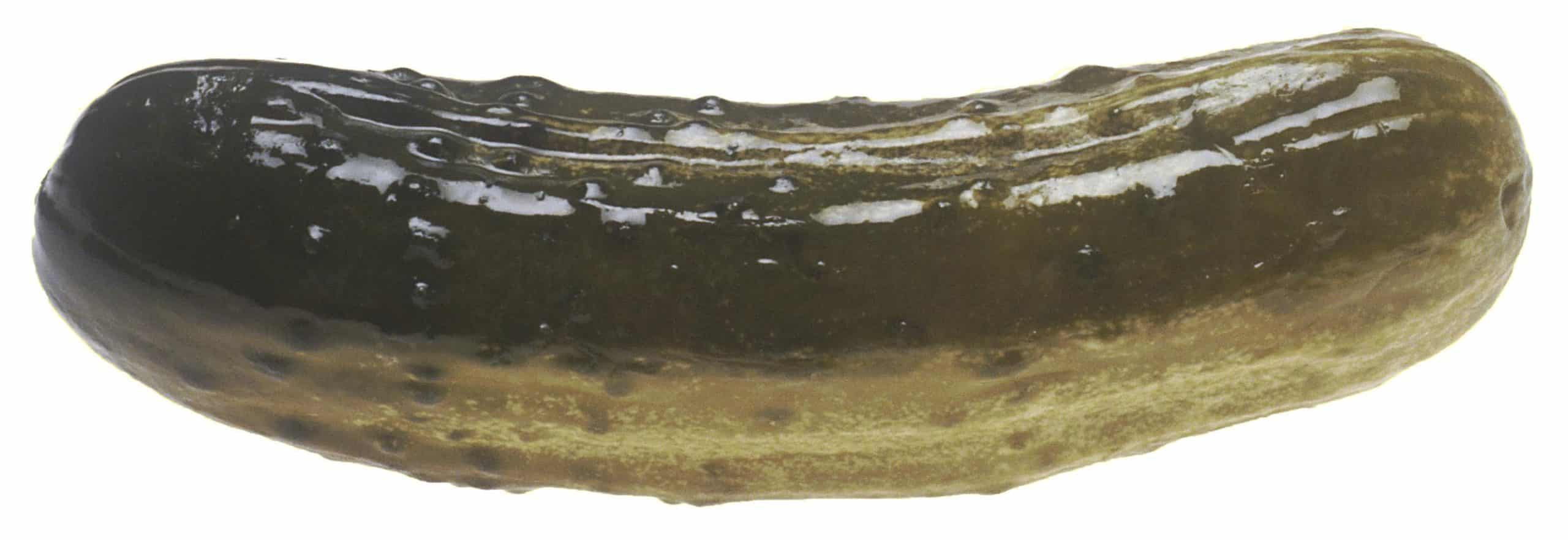‘In a pickle’ is not an easy idiom to unravel, but let’s try and do just that by looking at the context of Shakespeare’s use of the term ‘in a pickle’, and the modern meaning of the phrase.
In The Tempest King Alonso’s butler Stephano and his jester, Trinculo, are washed up on an island. Stephano has survived by clinging to a barrel of wine and since landing on the island the two of them have been continually drunk. When they later meet up with the king, Alonso observes: ‘Trinculo is reeling ripe. Where should they find this grand liquor that hath gilded ’em?’ He asks Trinculo, ‘How came’st thou in this pickle?’ Trinculo replies: ‘I have been in such a pickle since I saw you last that, I fear me, I will never out of my bones. I shall not fear flyblowing.’
In this context, Trinculo means he has been very drunk. He uses the word ‘pickle’ in the sense of pickling being a way of preserving food. He is saying that he is so pickled with alcohol that his body will be protected from maggots when he dies and will not decay.
We still sometimes use the word ‘pickled,’ today to mean drunk, along with other words such as ‘hammered,’ ‘blasted,’ ‘sloshed,’ ‘wasted,’ and many others. But it is far from one of the most common words used to mean being drunk. The most common word for that in England is ‘pissed.’ But being in a pickle, as used by Shakespeare in The Tempest means being drunk, and not in a difficult situation.

In a pickle!
It is half a century after Shakespeare’s time that we next see the term ‘in a pickle’. The phrase is written in the diaries of Samuel Pepys, when it has the meaning – totally different from Shakespeare’s – of being in trouble. An entry in 1660 is made after a day of his house being turned upside down by workmen doing some renovations, when Pepys wrote: ‘At home with the workmen all the afternoon, our house being in a most sad pickle.’
‘In a pickle’ usage today
In the modern idiom, the phrase ‘in a pickle’ means to be in a difficult situation. It is a term that is on the way out in the sense that it isn’t one of those idioms like ‘all that glitters is no gold,’ or ‘apple of my eye,’ or ‘a wild goose chase’ – that we use every day. But some of the older generations still say something like ‘What do I do now? I’m really in a pickle,’ meaning a difficult and unpleasant situation.
The word ‘pickle’ seems to have come from the Dutch word ‘pekel’ which referred to pickling brine or a similarly spicy sauce. It could be from the same root as ‘piquant,’ which derives from the same word as ‘pick’ and ‘pike,’ – something sharp. Eating a strong pickle or drinking pickle juice can burn the mouth with its sharpness.
The Dutch phrase in de pekel zitten means ‘to sit in the pickle brine,’ which would be an unpleasant place to sit.
However, in England, pickling vegetables has a long tradition, and both in the UK and America, ‘relish,’ which is made by pickling chopped vegetables, very popular because of its sharp taste, could make being ‘in a pickle’ in the sense of imagining being a piece of chopped vegetable drowning in that sharp liquid, a very nasty place to be and difficult to know how to get out of, an apt metaphor, and perhaps that is how it achieved idiom status.




Leave a Reply
Want to join the discussion?Feel free to contribute!